CONRAD BLACK is a former newspaper tycoon, a celebrated presidential historian and a popular columnist in National Review. His latest biography, Donald J. Trump: A President Like No Other (Regnery Publishing), launched May 14, 2018.
The following is the foreword to Donald J. Trump: A President Like No Other.
Conrad Black’s erudite biography of Donald J. Trump is different from the usual in mediis rebus accounts of first-year presidents. He avoids the Bob Woodward fly-on-the-wall unattributed anecdote, and “they say” gossip mongering. Nor is the book a rush-to-publish product from former insiders of the Trump campaign or administration. Instead, Black, a prolific and insightful historian, adopts the annalistic method in carefully tracing Trump’s earliest years in business through his various commercial misadventures, financial recoveries, and sometimes wild antics. Black’s aim is to illustrate how much of what Trump has done since announcing his presidential candidacy in summer 2015 is hardly mysterious. Instead, Trump’s methods are fully explicable by what he has always done in the past—in the sometimes troubling, but more often reassuring, sense.
Black is neither a hagiographer nor an ankle-biter. He seeks to understand Trump within the three prominent landscapes in which Americans had come to know their new president: politics, the celebrity world, and the cannibalistic arena of high-stakes Manhattan real estate and finance. Of the three, Black is most jaded about the anti-Trump hysteria within the first two, not because the real estate business is inherently a nobler profession, but because it more often lacks the moral preening and hypocrisies of both the beltway and tabloids. The result is an argument that the first president to have neither prior political nor military service nevertheless has his own demonstrable skill sets that are making his presidency far more dynamic than either his critics or supporters quite imagined. Black’s unspoken assumption is that it is more difficult to build a skyscraper in Manhattan than to be a career politician or an evening news reader.
Recommended
In Trump’s rise and fall and rise as a billionaire, Black never whitewashes his ruthlessness, his fast and loose relationship with the truth (e.g., “He is not so much a cynic as a methodological agnostic, not a liar as much as a disbeliever in absolute secular truths”), and his occasionally tawdry P. T. Barnum hawking.
As he guides the reader through Trump’s various land deals, casino crashes, name merchandising, risky hotel gambits, and golf course developments, Black offers unusual insight into how Trump, or for that matter anyone else, could survive such a rollercoaster of catastrophe and great fortune. While most of Trump’s rivals share his same carnivorous ethos, very few succeeded as did Trump.
What made Trump different from his competitors? Likely, his cunning, his almost Thucydidean reading of human nature, and his sixth sense about timing and salesmanship. In Plutarchian fashion, Black focuses on Trump’s physicality, especially his boundless energy and his impatience with nuance and self-doubt (“desperate cunning, unflagging determination, unshakeable self-confidence, ruthless Darwinian instincts of survival, and a sublime assurance that celebrity will heal all wounds”). Of course, the media and politicians were not ready for the naked applicability of these traits to the White House. But, as Black notes, the proverbial people after decades of misgovernance were—as if to let loose Trump on their country as both avenger and deliverer.
How many times did critics recoil in shock at Trump’s coarse epithets such as “little Marco,” “low-energy Jeb,” “lying Ted Cruz,” and “crooked Hillary”—only to note that such appellations kept reverberating in their critics’ heads, both appropriate and humorous if often cruelly so? Whose careerist agendas fared better after provoking the counter-punching Trump? For Black, Trump became president because he outworked and outhustled his competitors, because he saw that most seasoned politicians were split-the-difference 51 percent hedgers—and that the country by 2016 desperately wanted some sort of Samson to tear down the pillars of a complacent if not corrupt establishment, even if they and their deliverer might sometimes be injured in the rubble.
Black instinctively captures the essence of the Trump paradox: how did someone supposedly so crude, so mercantile, and so insensitive display a sensitivity to the forgotten people that was lost both on his Republican competitors and Hillary Clinton? Certainly, no one on stage at any of the debates worried much about 40 percent of the country written off as John McCain’s “crazies,” Hillary Clinton’s “deplorables” and “irredeemables,” and Barack Obama’s “clingers,” who were judged wanting for not capitalizing on the bicoastal dividends of American-led globalism.
Black notes the Trump-hinterland synergy. The country was looking for a third alternative to both free-market economics and neo-socialism, and yet again to both political correctness and the Republican often groveling surrender to it. Or as Black puts it, “Trump’s rise was an expression of sub-revolutionary anger by a wide swath of dissatisfied and mainly not overly prosperous or influential people.” But he adds that Trump was no third-party Ross Perot “charlatan” (or for that matter a Quixotic Ralph Nader), who came off quirky and without a workable agenda. Trump took a path that was far different from third-party would-be revolutionaries, in seeking to appropriate rather than to run against the apparatus of one of the two major political parties.
Most experts discounted Trump’s “make American great again” visions as anachronistic in the age of Silicon Valley cool, “peak oil,” the “knowledge-based” economy, and the “information age.” Trump doubled down and became even louder about free but fair trade, legal, diverse, and meritocratic immigration, “drill, baby, drill” oil policy, lower taxes and smaller government, an end to identity politics and political correctness, and a Jacksonian deterrent foreign policy that avoided both optional nation-building and the “blame America first” apologetics of Barack Obama’s lead from behind internationalism. Only half the country was ready for the Trump message (and perhaps less than that for the messenger)—but it was the more electorally important half in the key swing states of Florida, Michigan, North Carolina, Ohio, Pennsylvania, and Wisconsin. Trump assumed that even in the age of high techies and billionaire financiers, one can still not build a tower without the muscular labor of welders, cement layers, and glass installers.
Black’s final third of the book is magisterial, as he recites nascent Trump achievements—tax reform, deregulation, the end of the Affordable Care Act individual mandate, superb judicial appointments, curbs on illegal immigration, expanded oil and gas production, a restoration of deterrence aboard—against a backdrop of nonstop venom and vituperation from the so-called “Resistance.” He is certainly unsparing of the Left’s desperate resort to discard the Electoral College, sue under the emoluments clause, invoke the Twenty-Fifth Amendment, introduce articles of impeachment, and embrace a sick assassination chic of threats to Trump’s person and family. Some element of such hysteria is due to Trump’s ostensible Republican credentials (the Left had devoured even their once beloved John McCain, as well as the gentlemanly and judicious Mitt Romney), but more is due to Trump’s far more conservative agenda and his take-no-prisoners style.
Trump’s friends and critics assure us that his incessant twittering and carnival rally-barking are suicidal. Black is too insightful to settle for such a one-dimensional critique (while often lamenting that Trump’s bluster and rhetorical excess are hurting full appreciation of his otherwise solid accomplishments). Instead, Black sees much of Trump’s targeting as comeuppance and long overdue—given a sanctimonious, corrupt media, and a gate-keeping political class that weakened the country over the last two decades of fiscal, social, cultural, and military irresponsibility.
Three final themes make Black’s book different. One, he writes at times from firsthand experience as one who has known—and liked—Trump as an acquaintance rather than as a partner or adversary. His citation of Trump’s past displays of loyalty to friends and genuine concern for the middling classes may be illustrated in Trump’s most un-Republican use of the first-person plural possessive, as in “our” miners, “our” farmers, “our” vets, and “our” workers.
Second, Black knows what it is liked to be targeted by an overzealous prosecutor, and how the criminal justice system can be warped well before the advent of a formal trial. For Black the yearlong and heretofore mostly empty pursuit of Trump the supposed colluder, then Trump the purported obstructer, is in some sad sense the logical trajectory of the American criminal justice system that gives federal prosecutors unchecked power, especially when driven by political agendas amplified by the tabloid press. Few of us have ever had a Robert Mueller hounding us 24/7, with partisan lawyers, opportune leaks, and false news fueling his inquisition.
Finally, Black is a singular prose stylist of what in the ancient world would be called the Asiatic, or florid and decorative, style—multisyllabic and sometime near archaic vocabulary, ornate imagery, melodic prose rhythms, diverse syntax, and classical tropes of deliberate understatement, juxtapositions of Latinate and Anglo-Saxon words, and plentiful metaphors and similes. In the modern world, few in English write (or can write) any more like Edward Gibbon or Winston Churchill, but Black does so effortlessly and with precision. So it is often a treat to read an Isocrates or Cicero in modern English.
Most readers, like myself, have never met either Conrad Black nor Donald J. Trump. But after reading this engaging biography, those of any political persuasion would wish to do both.

















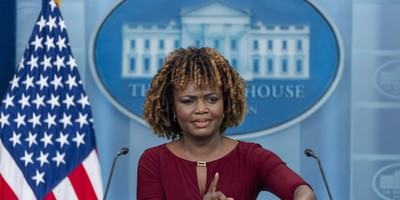


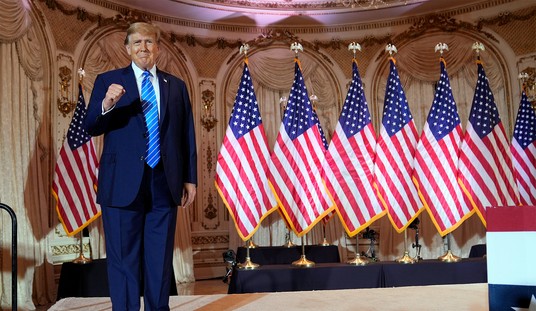
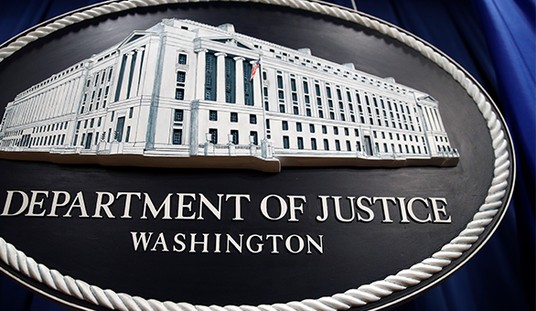

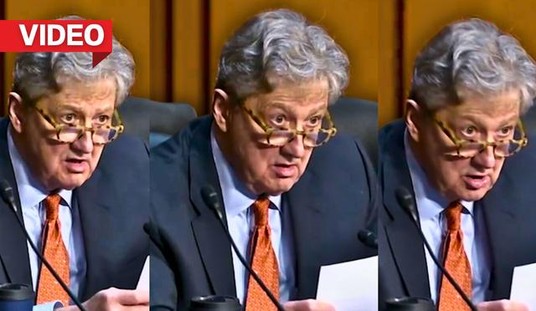
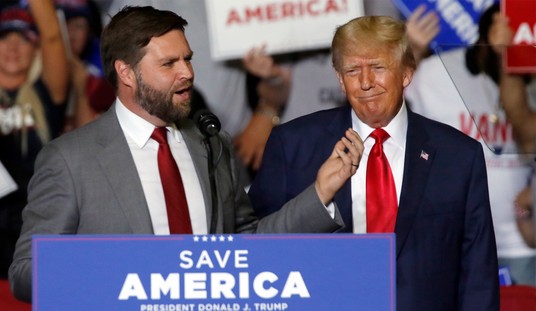
Join the conversation as a VIP Member